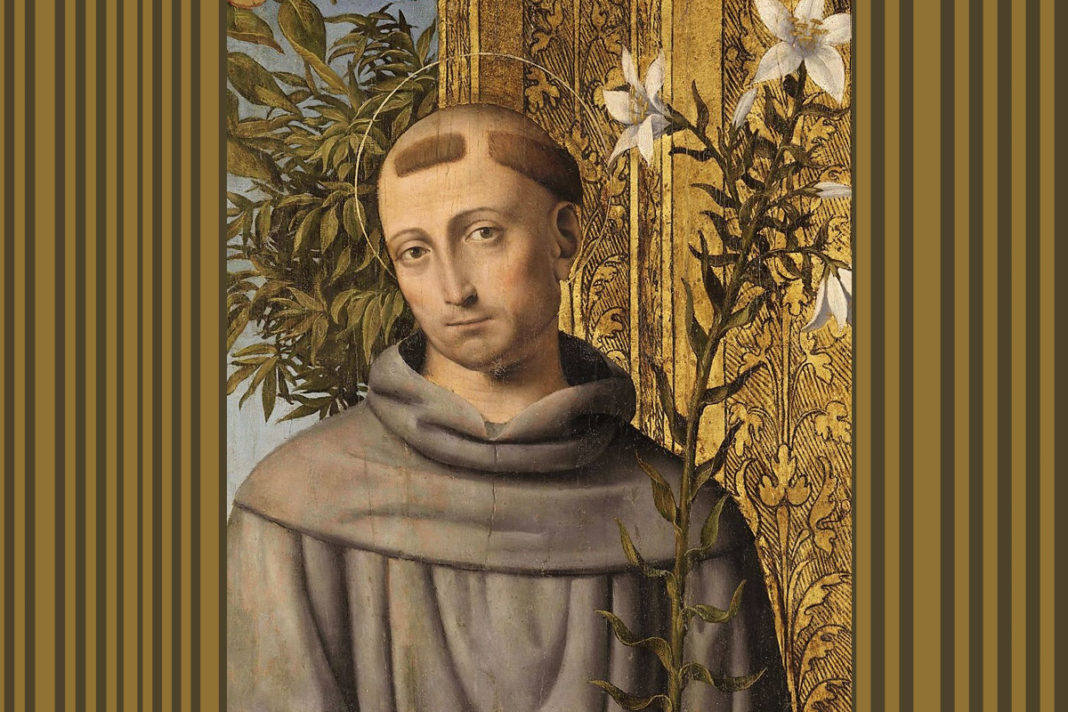L’Osservatore Romano [the Vatican’s daily newspaper] just published an article by Friar Carlos TROVARELLI, the 120th Minister General of the Conventual Franciscans (cf. issue 133, June 12-13, 2020). In his article, Friar Carlos commented about the letter Pope Francis gave him for the 800th anniversary of the entrance of St Anthony of Padua into Franciscan religious life.
Friar Carlos focused on two key words that Pope Francis used to describe “Fernando’s” transition from the Canons Regular to the Friars Minor: martyrdom and conversion. [Fernando was later called Anthony.]
Fernando had been moved by the example of the Franciscan Protomartyrs who had offered up their lives. The event prompted him to question his own life. Even in modern times, many friars have offered their lives to the Lord. This has made them fascinating subjects to all believers, particularly young people seeking a vocation. Regarding conversion, when we examine Fernando’s life, it is clear that he was not some lukewarm Christian. Nevertheless, it was his encounter with the Protomartyrs that prompted his desire to “go forth”, as our Pontiff has so often encouraged us to do. Jesus Christ burst into Fernando’s life and called him to go beyond what he had already achieved. Indeed, in human history, holiness has always been about facing the issues that confront us today.
Thus, when St. Anthony was shipwrecked, his shipwreck became a sign of all our shipwrecks, especially those of the many migrants who have tried to reach the Italian coast. Providence speaks to us today through these “accidents”, so that we might free ourselves from indifference and open ourselves up to being witnesses of evangelical life.
The Minister General highlighted two more key words: sharing and passion. St. Anthony embodied the Gospel by sharing in the suffering of the afflicted. He was always on the streets of the world. He could not close himself off in order to have a secure life without running the risk of also losing his fruitfulness. Friar Carlos explained that being fruitful in the faith can never mean having peace of mind. He gives an example of how it is for those who have a new baby; every family must change its habits and routine in order to accommodate the infant. So it was for St. Anthony’s fruitfulness: he did more than meet his neighbor; he shared the same stretch of road with him.
St. Anthony was holy because he could “see the Lord”, because he could read reality in a symbolic way and in particular, see the incarnate Son of God himself, shining in his brother’s face. To have such sight requires the light of the Gospel. It requires the light of Christ himself, who invites his disciples to see Him in the needy: “Whatever you did for one of these least brothers of mine, you did for me” (see Mt 25:40).
Finally, the Minister General, together with Pope Francis, addressed a comment to all Franciscan religious and the devotees of St. Anthony, that they might let this holy restlessness lead them to a renewed incentive to follow the path of proclaiming and giving witness to the Gospel with radicality and justice.
Office of Communications














